Why Does Your Cat Play in the Litter Box? (+ How to Discourage It)
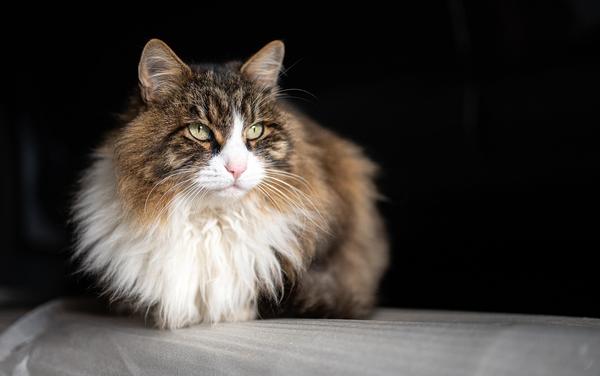
Ever find yourself staring at your playful feline friend, scratching your head in confusion as it hops in and out of the litter box with reckless abandon?
You might be wondering, "Why on earth is my cat playing in its own waste? 🤔"
I totally get it.
It's a little unsettling, right?
But fear not, my fellow concerned cat parents, because today we're going to dive deep into this curious behavior and find out what's really going on.
Are you ready to join me on this investigative journey?
Let's begin.
Is It Safe for Cats to Play in the Litter Box?
Let's talk about whether it's safe for cats to play in the litter box.
Here's what you need to know:
- Use non-toxic clumping litters to keep your cat out of harm's way.
- Playing in the litter box can lead to sickness and a mess throughout your house.
- It might seem strange, but sometimes cats play in there to ease itching or cool themselves down.
But remember, the litter box isn't meant for playtime.
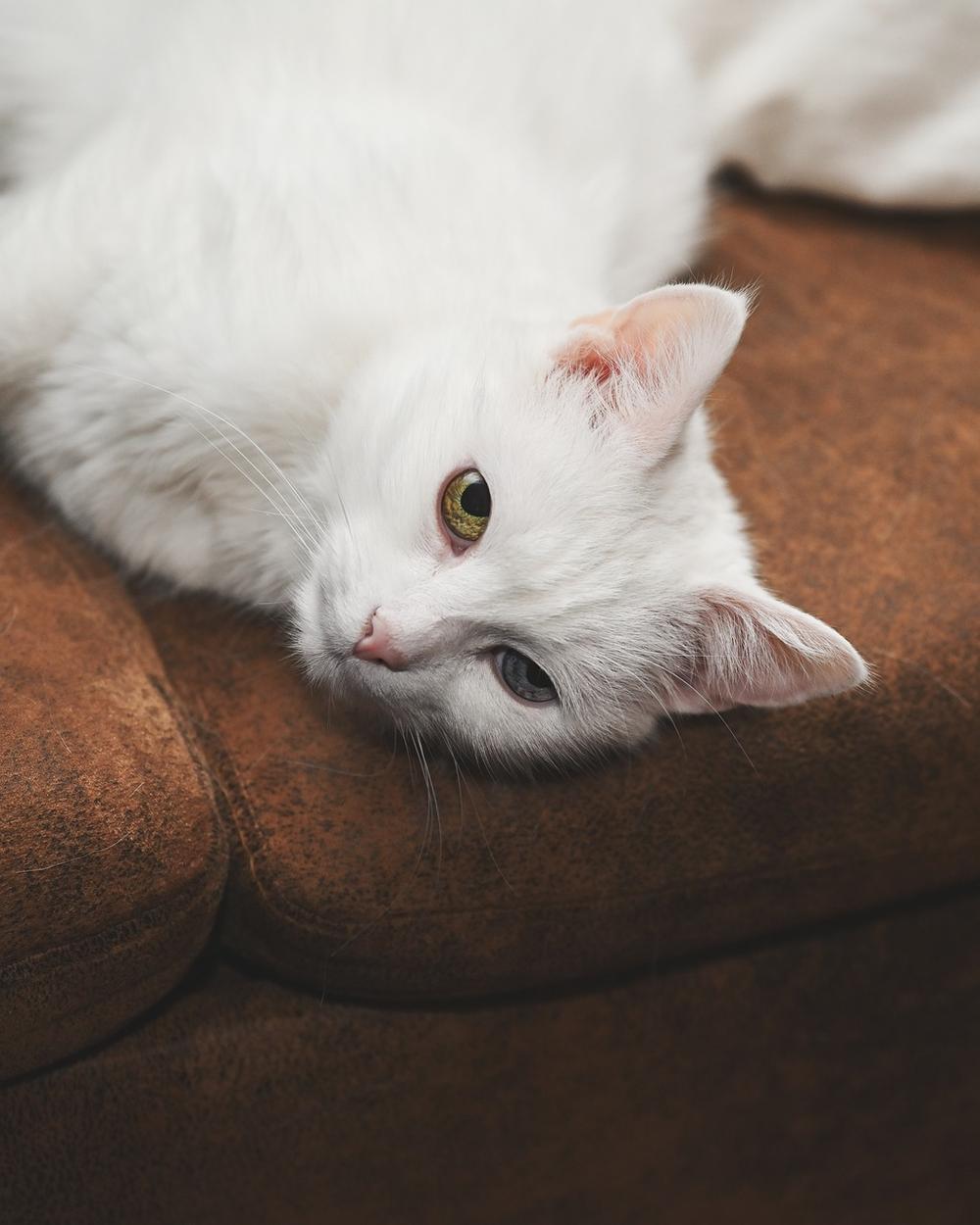
So, what should you do instead?
Here are a couple of suggestions:
- Set up a separate area with toys and scratching posts to keep your cat entertained.
- Keep the litter box clean by scooping regularly, so your cat won't feel the need to find relief elsewhere.
With these tips in mind, you'll have a happy, healthy cat and a tidy home.
Main points I'll expand upon further down this article:
- Playing in the litter box is normal cat behavior.
- Excessive scratching and digging should be addressed by a professional.
- Kittens may play in the litter box due to lack of hiding places.
- Understanding your cat's behavior can provide insights into their well-being.
- Providing a quiet and private location for the litter box is important.
- Proper litter box maintenance is crucial for a comfortable environment.
- Litter box habits can indicate physical or mental issues.
- Cats may seek refuge in their litter box when experiencing anxiety.
- Moving the litter box to a secluded location can help.
- Boredom can lead to cats playing in the litter box.
And it gets even more intriguing...why do some cats prefer to play in their litter box rather than using it for its intended purpose?
Let's dive into the fascinating reasons behind this behavior and explore how you can effectively address it.
Is It Normal for Cats to Play in the Litter Box?
Cats playing in the litter box is a common behavior, especially among mischievous kittens. It helps them satisfy their instincts and establish territory. Excessive scratching may indicate an underlying issue. Kittens usually outgrow this phase, but maintaining a clean litter box is important.
Seeing your cat playing in the litter box is not something you want to witness on a daily basis. But hey, our feline pals can't resist the temptation sometimes.
Especially those mischievous kittens, always seeking excitement and adventure. And let's face it, what better place to embark on their quest than the majestic litter box?
You must be wondering, though, if this behavior is harmless or cause for concern. Well, most of the time, there's nothing to sweat over.
Cats engage in playful antics inside their litter box for a variety of reasons.
It helps them satisfy their primal instincts and establish their territory.
Can you believe some even find solace in that peculiar activity?
I know, mind-blowing!
However, excessive scratching and digging might indicate an underlying issue that requires attention.
If your furry friend seems to be going at it like there's no tomorrow, it's wise to seek counsel from a veterinarian or animal behaviorist.
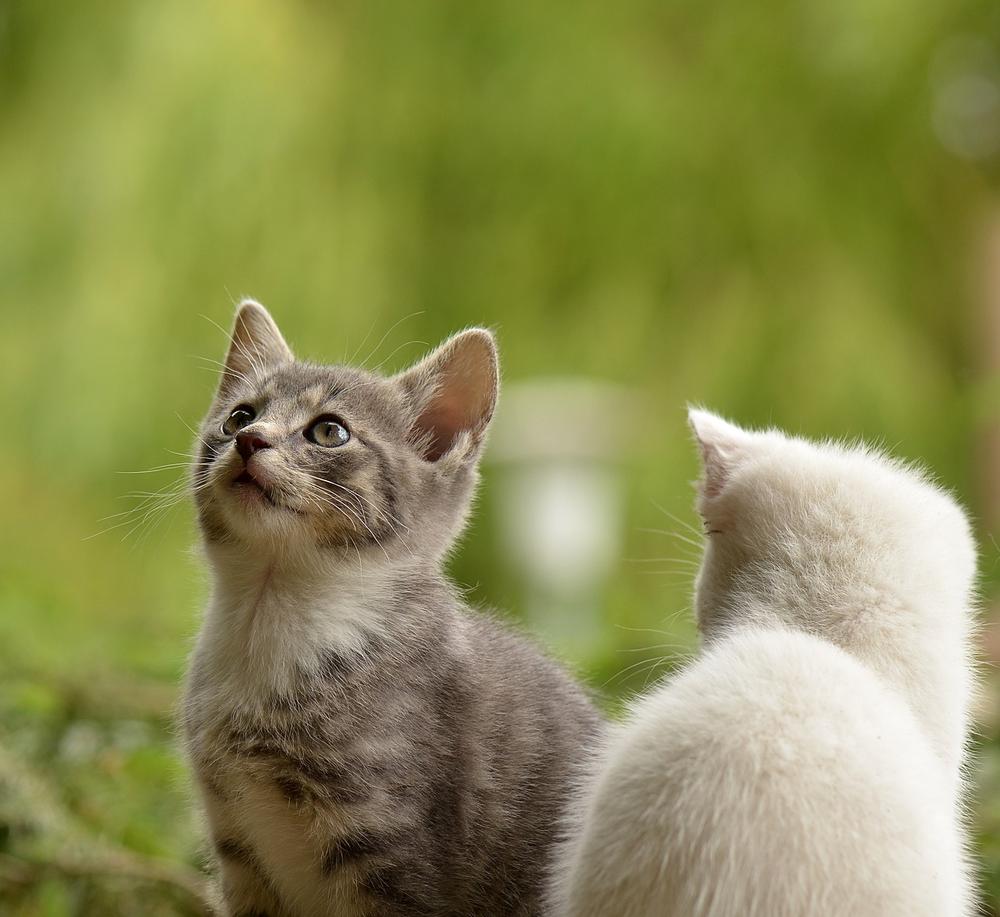
But fret not, my dear reader.
Kittens usually outgrow this phase of playing in the litter box as they mature into dignified adult cats.
Just remember that if their environment lacks hiding spots, the allure of the litter box intensifies.
And here's another vital piece of advice:
Maintain proper hygiene around the litter box.
Keep it clean and ensure there's enough depth in the litter to satiate your cat's wild desires.
Because dirty litter boxes are a huge turnoff for them.
So don't worry too much about your cat's litter box adventures.
They're probably just indulging in some innocent fun, exploring their primitive instincts, and marking their presence.
And now, let me delve deeper into the reasons behind your cat's litter box playtime and how understanding their behavior can help you address any concerns...
Understanding Your Cat's Behavior
Knowing how your cat behaves is important. It tells you a lot about their overall well-being.
See, some cats play in the litter box to get your attention.
If you want to stop this, spend more time playing with them.
But there are other reasons why they do it too.
Like, they might do it to claim the litter box as their territory.
Or maybe it's because they can't go outside and they miss dust bathing.
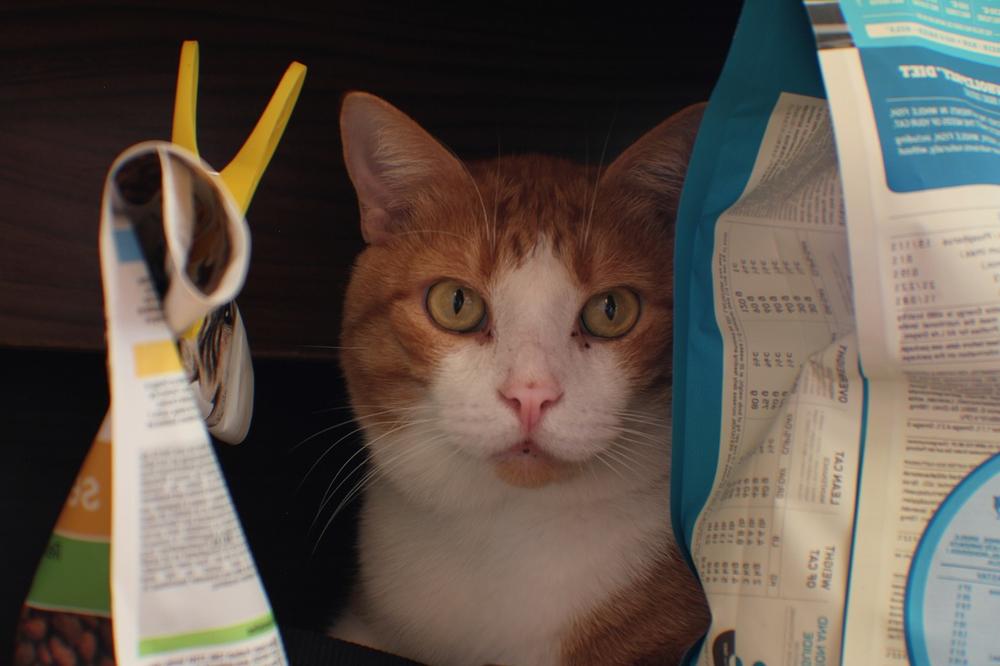
And don't forget, digging and scratching in the litter box marks their territory.
Cleaning the litter box often helps satisfy their territorial instincts.
Make sure to give them a quiet, private spot that suits their natural instincts.
Keep an eye on their behavior to address any issues.
Also, some cats use the litter box to hide or show territorial behavior.
This could mean they just need some extra love and attention.
Understanding your cat's behavior is crucial for giving them good care. 😺
The Importance of Proper Litter Box Maintenance
To keep your cat happy and healthy, you gotta take care of that litter box. Here's what you need to do:
- Have enough litter boxes. The rule is one per cat with an extra one to avoid any turf wars.
- Get a roomy litter box so your cat can roam around freely.
- Don't skimp on the litter. Use enough so your cat doesn't dig excessively and it stays clean without getting all over your house.
- Ease your cat into the litter box by using the right kind of litter. This will stop them from treating it like a playpen and give their paws some good vibes.
- Clean up that litter box every day, especially if you're dealing with clumps. If you want more convenience, try an automatic cleaner.
- Change out the litter regularly to prevent nasty urinary tract infections. Consider odor-controlled or auto-cleaning options to keep the stink away.
- A covered litter box might be worth considering to keep those odors contained. But remember to clean it out often.
A clean and hygienic litter box is the key to your cat's happiness.

Follow these tips and your furry feline buddy will have a cozy place to do their business.
Health Issues That May Cause Litter Box Play
Watch out for these health issues that might cause your cat to act up in the litter box:
- If your furry friend is going wild in there, it could be a sign of hyperthyroidism. So make sure you monitor their energy levels, and it's always good to check with the vet.
- How your cat behaves in the litter box can give you hints about both physical and mental problems they might be facing.
- If your kitty starts zooming around after doing their business, there could be pain or discomfort lurking underneath.
- Spending an excessive amount of time in the litter box might mean something serious like urethral obstruction or constipation.
- Persistent trips without any pee or poop production might translate to constipation troubles.
- Keep in mind that conditions like urinary tract infections, kidney stones, and feline interstitial cystitis can lead to prolonged stays in the litter box.
- It's not normal for your cat to excessively play, sleep, or roll around in their litter box. These behaviors may indicate medical problems such as stress, urinary issues, high blood pressure, or thyroid woes.
- By paying close attention to how your cat interacts with their litter box, you can catch emotional or physical concerns early on. This includes problems related to peeing and diseases that need veterinary attention.
So, just make sure that you stay observant when it comes to your cat's bathroom behavior.
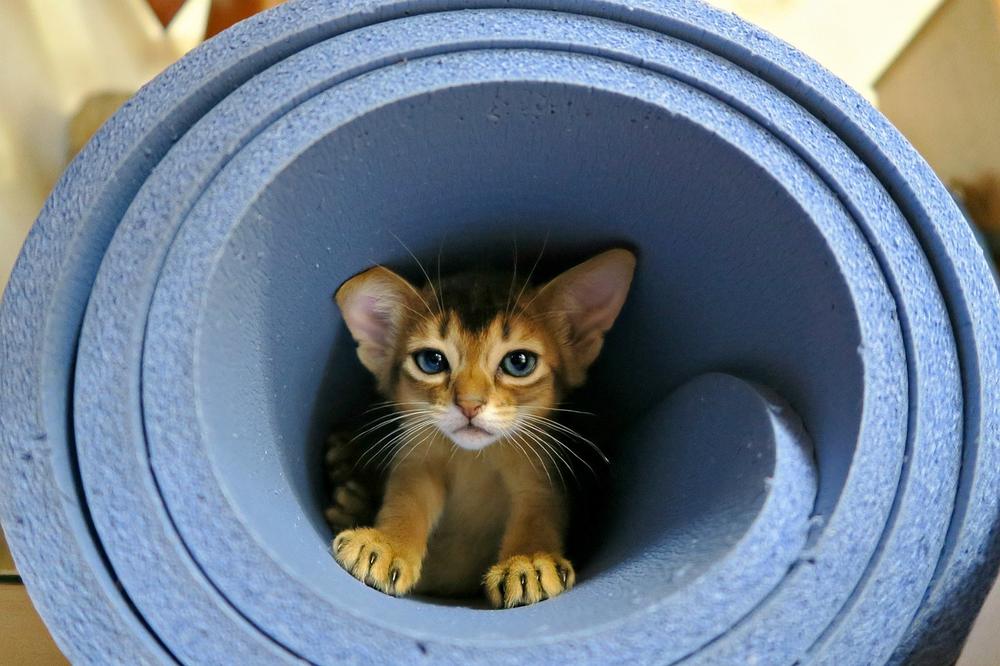
It could save them from hidden health troubles.
The Role of Stress and Anxiety in Litter Box Play
| Category | Description |
|---|---|
| Stress-related litter box behaviors | Cats may exhibit stress-related litter box behaviors when they are experiencing anxiety. This can include playing or hiding in the litter box as a way to seek refuge or feel safe. These behaviors are often triggered by relocation or significant household changes, such as moving to a new place, introducing a new pet, or disruptions in their routines. |
| Territorial behavior | Cats may display territorial behavior by using the litter box as a way to mark their territory or establish dominance. This behavior can be seen as a form of communication, indicating a need for attention or better adjustment to changes in their environment. |
| Need for attention | Cats may engage in litter box play as a way to seek attention from their owners. They may feel neglected or overlooked, and using the litter box can be their way of getting noticed. Providing regular playtime, affection, and enrichment activities can help address this need for attention. |
| Adjustment to changes | Cats may need time to adjust to changes in their environment, which can result in litter box play. It is important to provide a stable and secure environment for your cat, especially during times of change. Gradual introductions, maintaining routines, and providing comfort can assist in helping your cat adjust and reduce litter box play behaviors. |
| Safety concerns | While litter box play is generally harmless, it is important to ensure the litter box and its contents are safe for your cat. Avoid using litter that can be harmful if ingested and regularly clean the litter box to prevent any health issues. Additionally, provide alternative outlets for play and enrichment to redirect your cat's attention away from the litter box. If you have concerns about your cat's behavior or safety, consult with a veterinarian for guidance. |
Let me tell you why your cat may be playing in the litter box.
It could be because of a recent move or significant changes in your household. You see, when cats move to a new place, they often rely on their litter tray for comfort until they get used to their surroundings.
But here's the thing. If your cat starts using the litter box as a hiding spot or shows territorial behavior, it might mean they need more attention or time to adjust to the changes happening around them.
Stress and anxiety can also make cats, especially those that are newly introduced, spend more time in their litter box as they adapt to their new environment. In fact, whenever cats feel anxious or stressed, they tend to retreat to the comfort of their litter box.
This behavior is triggered by disruptions in their routines, loud noises, or the presence of new family members or pets.
So if your cat is spending an unusual amount of time playing in the litter box and showing signs of stress or anxiety, chances are these are the causes.
You have to keep this in mind.
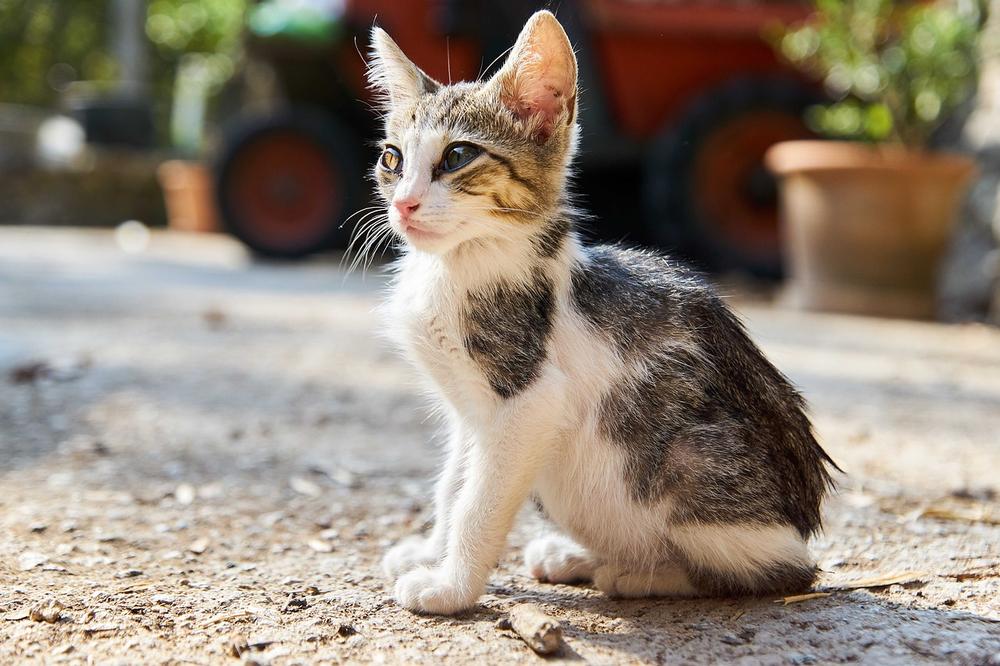
During important life events or changes in routine, cats may seek solace in their litter box because it offers them a sense of security and familiarity when everything else feels uncertain.
Now let's talk about safety.
Is it safe for your cat to play in the litter box?
Well, generally speaking, it isn't harmful.
However, you should pay attention to any changes in your cat's litter box habits and monitor their all in all well-being.
If you notice excessive play in the litter box or other concerning behaviors, it would be best to consult with your veterinarian to rule out any underlying health issues.
Cats are complex creatures who express their emotions in unique ways.
Understanding the role of stress and anxiety in litter box play can help you provide better care and attention to your furry friend.
How to Discourage Litter Box Play
Sometimes, cats can get a little too playful when it comes to their litter box. Luckily, there are some simple ways to discourage this behavior:
- Doublesided sticky tape: Placing it near the edge or inside the litter box creates an uncomfortable texture for your cat. This can deter them from excessive playing.
- Change the location: If the sticky tape method doesn't work, try moving the litter box to a more secluded area. A quiet and private spot can discourage playfulness during litter box time.
- Avoid shouting: Shouting at your cat won't help. It only creates fear and hinders their learning process. Instead, focus on positive reinforcement techniques.
- Offer rewards: Whenever your cat uses the litter box properly without playing around, reward them with treats or praise. Positive reinforcement goes a long way in encouraging desired behaviors.
Patience is key when training your cat.
By implementing these strategies and providing consistent guidance, you can discourage litter box play and create a more peaceful environment for both you and your furry friend.
Providing Alternative Play Options for Your Cat
Here's how you can provide different ways for your cat to play:
- Get interactive puzzle feeders so that your cat can use their brain while eating.
- Introduce new toys or activities regularly to keep things interesting and fun.
- If you notice your cat getting bored, give them more opportunities for playtime and stimulation.
- Remember, play is not just about entertainment - it also helps your cat's overall well-being and strengthens your bond with them.
- Regularly brush your cat's fur to prevent them from rolling around in the litter box excessively.
- Consider using a smaller, shallower litter box to discourage your cat from engaging in this behavior.
- If possible, let your cat have some outdoor time to roll around in the dirt, as it's a natural form of bathing for them.
- To add extra excitement, try introducing catnip or other cat-friendly plants that will stimulate them.
Please bear in mind that cats need both mental and physical stimulation outside of their litter box to stay happy and entertained. So make sure to provide a variety of play options and keep them engaged!
Consulting a Veterinarian for Litter Box Concerns
Watch your cat's litter box behavior closely, you've got to be vigilant.
If anything changes, it’s time to seek veterinary help right away.
Don't delay.
Only a professional veterinarian can identify hidden health problems that demand attention.
Take action.
Trust me, detecting potential issues early is key to keeping your furry friend healthy and happy. So, keep a watchful eye on that litter box and get the experts involved sooner rather than later!
Your cat’s well-being depends on it.
And that wraps up today's article.
If you wish to read more of my useful articles, I recommend you check out some of these: Why Does My Cat Want Me to Watch Her Eat, Why Do Cats Knock Over Their Food Bowls, Why Is My Cat Hiding in the Closet, and Should I Adopt a Declawed Cat
Talk soon,
-Sarah Davis